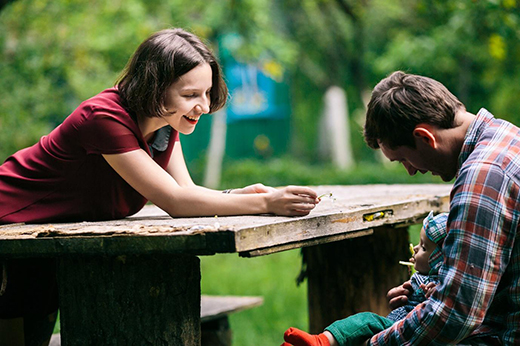Pranjal Shah
30-Oct-2025
Kindness may not fix your problems, but it does make the little frustrations of life easier to handle.
Kindness is often hailed as a virtue, yet somehow it usually feels like an optional side quest in the game of life. Between deadlines, traffic jams, and the endless ping of notifications, stopping to smile, help, or simply notice someone can seem inconvenient. And yet, these small, deliberate acts, which are almost embarrassingly simple, have a remarkable power to lighten the weight of a rainy day and make life just a little more bearable. It turns out, being kind is not just noble; it is practical, surprisingly effective, and, dare we say, a lot more fun than we give it credit for.
The Bodily Benefits
Physiologically speaking, kindness yields tri-benefits. According to studies, acts of kindness are positively correlated with the release of dopamine, oxytocin and endorphins. Dopamine is the happy hormone generally associated with motivation and pleasure. It instils a sense of reward and contributes to the general upliftment of mood. Oxytocin, on the other hand, is known as the love hormone and is connected to social bonding, attachment and the resultant cheerful effect. Lastly, endorphins are peptides which can be understood as natural painkillers. These alleviate stress and improve mood. The collective impact of these three leads us to the second benefit, which is the decrease in cortisol. Cortisol is the stress hormone of the body; therefore, its reduction entails lowered stress, anxiety, heart rate and blood pressure.
You may also like: A Guide to Calm the Stress Hormone

Image Credits: Freepik
The Psychological Returns
Along with the physiological advantages to our mental well-being, there are several direct psychological benefits attached to kindness. Chief among them are increased self-esteem and self-efficacy. Engaging in acts of kindness reinforces a positive sense of self. Even small gestures can leave behind a lingering sense of purpose and meaning, while the successful completion of a kind act strengthens our confidence in our ability to make a difference. This, in turn, fosters inner stability and resilience. Moreover, kindness cultivates a sense of connection, however brief, reminding us that we are part of a larger social fabric. These moments of shared humanity can ease feelings of loneliness and isolation. Collectively, such experiences serve as powerful buffers against depression and anxiety, helping us build a more optimistic and emotionally grounded outlook on life.
The Practical Cheat-code
Kindness, after all, need not be reserved for grand gestures or special occasions. It often thrives in the smallest, most ordinary moments of daily life, the quiet, almost invisible choices that add warmth and ease to our shared spaces. Incorporating a few simple practices can help make kindness less of an afterthought and more of a habit.

Image Credits: Pexels
Also Read: Does Heartbreak Affect Your Overall Health? A Relationship Expert Weighs In
At the end of the day, kindness is one of those rare micro-habits that pays off immediately, for you as much as for anyone else. It does not cost a thing, it rarely backfires, and it has the uncanny ability to make life feel a little lighter, a little smoother, and a lot less annoying. Think of it as a cheat code for navigating life’s minor frustrations and the best part is you do not even need to level up to use it. It is efficient, effective and far more enjoyable than most self-improvement trends out there.
Cover Credits: Pexels